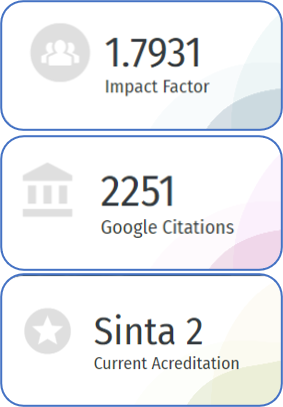PENGARUH KEBIJAKAN DECENTRALISASI FISKAL TERHADAP KAPASITAS KINERJA OTONOMI DAERAH DI WILAYAH KALIMANTAN
Abstract
Fiscal decentralization that has been implemented since 2001 is logical implication of decentralization system (regional autonomy) in unitary state of Republic Indonesia in order to cost the authority given to local governments (money follows function). Fiscal Decentralization system is implemented to give a large discretion for local governments in managing their revenue and expenditure as one of stimuli to build the regional economics, but for about seven years implementation of fiscal decentralization, their dependency on fiscal transfer just decrease slightly. It is shown by the amount of balancing fund that still has the highest portion in local government revenue and expenditure. The result of the research shows that the average proportion of balancing fund for provinces in Kalimantan still achieves more than 60%, even the local governments (districts) has higher dependency on central government transfer. Considering this condition, reducing the central governments transfer in significant amount will disturb the local autonomy of performance capacity. Finally, it will threaten the regional development sustainability.Keywords: Fiscal decentralization, Decentralization system, Balancing fund, Performance capacity
Downloads
Download data is not yet available.
How to Cite
PKP2A III LANT. (11). PENGARUH KEBIJAKAN DECENTRALISASI FISKAL TERHADAP KAPASITAS KINERJA OTONOMI DAERAH DI WILAYAH KALIMANTAN. Jurnal Borneo Administrator, 4(2). https://doi.org/https://doi.org/10.24258/jba.v4i2.30
Issue
Section
Articles
Policy for Journals That Offer Open Access
Authors who publish with this journal agree to the following terms:
- Authors retain copyright and grant the journal right of first publication with the work simultaneously licensed under a Creative Commons Attribution-NonCommercial-ShareAlike 4.0 International License that allows others to share the work with an acknowledgement of the work's authorship and initial publication in this journal.
- Authors are able to enter into separate, additional contractual arrangements for the non-exclusive distribution of the journal's published version of the work (e.g., post it to an institutional repository or publish it in a book), with an acknowledgement of its initial publication in this journal.
- Authors are permitted and encouraged to post their work online (e.g., in institutional repositories or on their website) prior to and during the submission process, as it can lead to productive exchanges, as well as earlier and greater citation of published work (See The Effect of Open Access).























